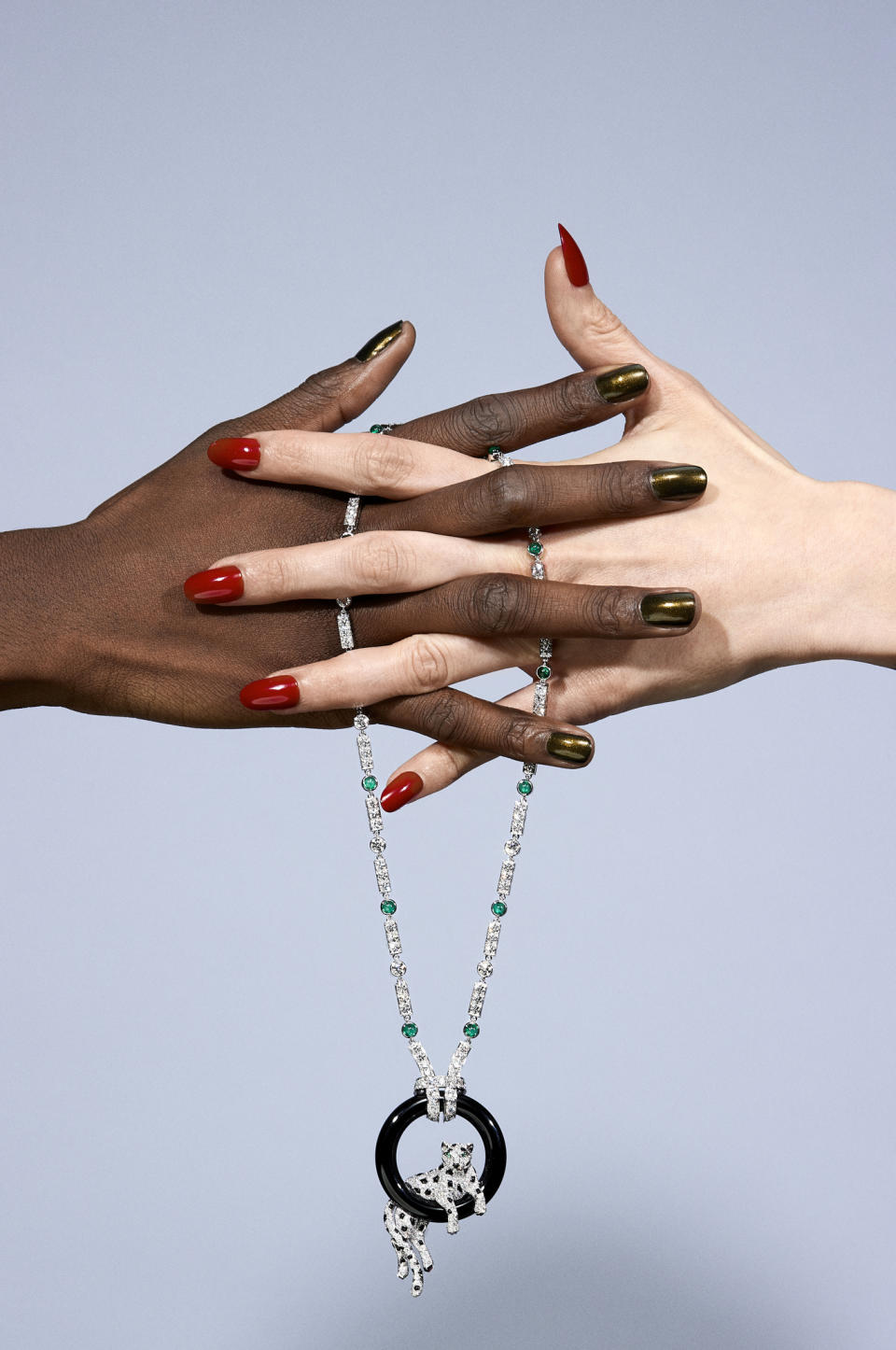Activist Bluebell Spells Out Richemont Demands
- Oops!Something went wrong.Please try again later.

LONDON — Bluebell Capital Partners wants to shake up Compagnie Financière Richemont, involving everything from selling off its soft luxury and e-commerce operations to renaming itself.
It also wants to tap luxury jewelry expert, entrepreneur and activist investor Francesco Trapani to join Richemont’s board.
More from WWD
Bluebell wants to reshape Richemont in the medium term and is lobbying for changes to corporate governance; better board representation for minority shareholders, and a strategic focus on hard luxury. Bluebell has even floated the idea of a new name involving the luxury giant’s flagship brand, Cartier.
As reported earlier this week, Richemont issued a statement confirming that it had received requests from Bluebell asking for more board representation for the holders of Richemont’s “A” shares, which are publicly listed on the SIX Swiss Exchange.
There are 522 million “A” shares, and 522 million “B” shares in issue.
While the “A” shares are listed, the “B” ones are not. Instead, they are held by Compagnie Financière Rupert, which belongs to Johann Rupert, Richemont’s founder and chairman.
Rupert controls 10 percent of the company’s capital, and 51 percent of its voting rights. Although a management team runs Richemont, Rupert remains deeply involved in, and committed to, the business.
Richemont said Tuesday that Bluebell’s proposals will be submitted to shareholders at the annual general meeting on Sept. 7.
“We are Richemont investors, and we believe this stock could double in value in two to three years’ time. We think Richemont is a fantastic company, and we want to work constructively with it to achieve that goal,” said Marco Taricco, partner and co-chief information officer at Bluebell, which is based in London.

Jacob + Carrol/WWD
“We think there is no better person on the planet than Francesco Trapani to contribute and add value to the Richemont board,” Taricco added.
Bluebell first invested in Richemont around 18 months ago, and holds at least 1 million “A” shares.
Richemont declined to comment further regarding Bluebell and its requests.
Shares in the company edged down slightly on Wednesday, closing at 105.85 Swiss francs.

Kanji Ishii for WWD
On Wednesday, Bluebell issued a statement detailing its Richemont demands. It wants Trapani named as an independent board director, and a representative of the “A” shareholders.
Bluebell described Trapani as “an undisputable leader in the jewelry and global and luxury goods industry with an exemplary track record.” The investor said that having Trapani on the board would “significantly improve” Richemont’s governance, and contribute to the long-term success of the company.
Bluebell also wants amendments to Richemont’s bylaws, and would specifically like to see an increase in the minimum number of “A” board directors from one to three, and an equal number of “A” and “B” board members, with equal voting rights.
As reported, some of Richemont’s board members own “A” stock, but there is no specific representative of “A” shareholders currently on the board.
Swiss law requires that in companies where there is more than one class of share, each class should be able to have one representative on the board, although only a few companies actually conform to the rule.

Courtesy of Chloé
Bluebell believes that by closing the voting and financial gap between the “A” and “B” teams, Richemont will become more efficient, accountable and driven to succeed.
Those proposed changes to the board, and to Richemont’s corporate governance policies, are just the beginning.
In the medium term, Taricco said Bluebell would also like to see Richemont focus entirely on hard luxury. He and his team want Richemont to divest its online businesses, Yoox Net-a-porter Group, and Watchfinder, and its fashion division, too.
Richemont’s soft luxury brands include Chloé, Dunhill, Azzedine Alaïa, Montblanc, AZ Factory and Delvaux.
Bluebell believes those companies are an unprofitable distraction, and dragging down the share price growth compared with Richemont’s luxury peers such as LVMH and Hermès. He said a focus on “pure, hard luxury” would restore a dynamism to Richemont shares, and send the company flying alongside, or even past, its peers.
Bluebell also believes that Richemont can use its net cash cushion, currently 5.4 billion euros, “more effectively,” and potentially rebrand the whole operation as Cartier Group, signaling a renewed focus on hard luxury, and its largest and most lucrative brand.
Although Richemont doesn’t break out sales by brand, jewelry has long been its biggest and most profitable division. In the first quarter ended June 30, combined sales at Cartier, Buccellati and Van Cleef & Arpels, grew 12 percent to 3.02 billion euros at constant exchange rates.
Richemont’s specialist watchmaking division, which includes collector brands such as Panerai, IWC and A. Lange & Söhne, grew 10 percent in the three months to around 1 billion euros. Richemont’s e-commerce platforms and its luxury fashion division had combined revenues of 1.29 billion euros.
Overall revenue in the quarter amounted to 5.26 billion euros, 12 percent higher than last year.

courtesy image
Bluebell has never been shy about stating exactly what it wants. Founded in 2019 by Trapani and the former investment bankers Taricco and Giuseppe Bivona, the activist investor turned up the heat on Hugo Boss in 2020, and helped to eject its chief executive officer Mark Langer.
In the span of a few years, Bluebell has also invested in, and demanded changes at, companies including Danone, GlaxoSmithKline and Lufthansa.
Although Trapani officially severed his ties with Bluebell late last year, he remains on friendly terms with his former partners, and he knows a thing or two about corporate activism.
The former Bulgari CEO and LVMH Moët Hennessy Louis Vuitton executive muscled his way onto the board of Tiffany & Co. in March 2017 as part of a deal with another activist investment firm, Jana Partners LLC.
He was vocal from the get-go and was instrumental in picking a new Tiffany CEO, Alessandro Bogliolo. Tiffany & Co. was later sold to LVMH in a blockbuster deal, and Trapani left the board to pursue other interests.
Trapani has a long history with LVMH, which purchased his family’s company, Bulgari, for roughly $5.2 billion. That deal put Trapani in charge of LVMH’s watch and jewelry activities, where he served as chairman and CEO. It also made Trapani and his extended family very rich.
In exchange for the Bulgari family jewels, they were granted 3.6 percent of LVMH’s share capital, and later sold off a large portion of those shares.
Trapani’s résumé also includes a stint as chairman of private equity firm Clessidra SGR, where he helped with the acquisition of the Roberto Cavalli brand in 2015, and as an investor in two Italian food companies.
Bluebell’s arguments aren’t new. For years, many financial analysts have pummeled Rupert and his managers with questions about the future of YNAP, and Richemont’s strategy for its costly digital businesses.
Rupert has always said he is investing in the retail and marketing models of the future.
As reported, Richemont is in advanced talks about merging YNAP with Farfetch to create a neutral, open platform to sell luxury online. Those negotiations are ongoing.
Over the years, analysts have also wondered why Richemont spends its money and energy on the luxury fashion brands, when they’re not driving sales or profits.
But Richemont and its brands are close to Rupert’s heart, and for decades he has built and shaped the company just the way he wants it.
And while the analysts have voiced their opinions over the years, Rupert has gone largely unchallenged by activist investors. After all, he’s the founder with 51 percent of the voting rights.
A few months ago, shares in Richemont jumped more than 5 percent following reports that activist Daniel Loeb’s hedge fund Third Point was taking a close look at the luxury giant. Some reports said Third Point had taken a stake in the company, while others said the activist made some inquiries.
The furore quickly died down.
With Bluebell and Trapani now in the mix and agitating for a new approach to governance and business, that narrative could change dramatically.
Sign up for WWD's Newsletter. For the latest news, follow us on Twitter, Facebook, and Instagram.

